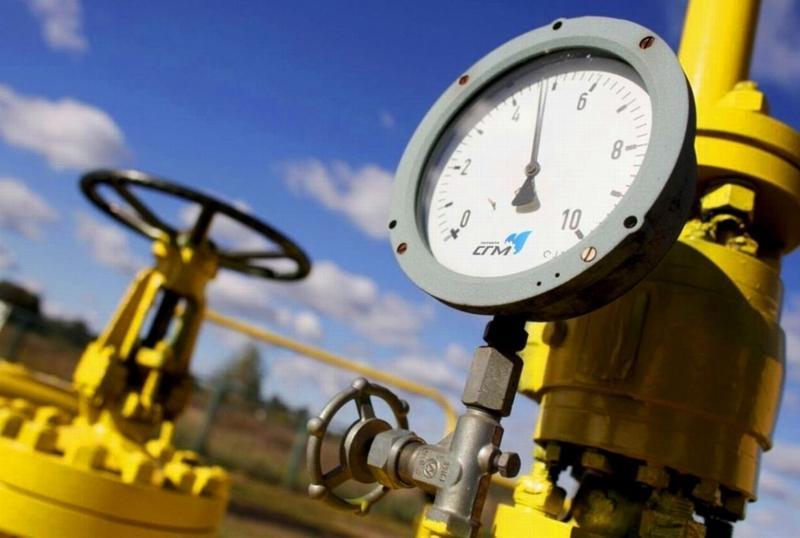The EU’s decision to allocate €2 billion to Azerbaijan is a clear example of this change.
The annual meeting of the Southern Gas Corridor Advisory Council in Baku in early February drew the attention of Europe and the United States, as the main discussions at the meeting were focused on the expansion of the corridor in two segments—TANAP and TAP pipelines.
EU Energy Commissioner Kadri Simson also said: “The 8th ministerial meeting of the Southern Gas Corridor Advisory Council allows us to discuss increasing gas supplies to Europe.” According to her, there are different estimates of supply volumes. However, she pointed out that certain steps may be taken in general, including on the part of Azerbaijan, to expand supplies: “We currently have an operating pipeline, but it will be launched at full capacity only at the beginning of the summer. 10 billion cubic meters of gas can be transported to Europe through it.”
According to the International Energy Agency (IEA) estimates, global gas consumption reached 4.109 trillion cubic meters in 2021. This year it is expected to reach 4.148 trillion cubic meters. Meanwhile, an increase, albeit slow, in gas demand is expected in almost all major consumption regions, except Europe. For example, gas consumption in North America is expected to grow by 1 percent, in South and Central America by less than 1 percent, and in Asia by 5 percent. This year, gas consumption in Europe will decrease by 4 percent after the 5.5 percent increase seen last year. This decrease is expected to be mainly due to the growing use of coal and alternative sources in power generation because of the high cost of gas. The gas demand in industry will continue to grow.
Europe is now actively working with all possible sources of gas supplies. According to Rystad Energy, terminals that process liquefied natural gas into pipeline gas in Southeast Europe were operating at 51 percent capacity in early January before jumping to 75 percent in early February. Europe received a record amount of liquefied natural gas in January and is continuing the process. In contrast, Russian gas supplies to the continent are declining. In 2021, Gazprom was able to sell 135 billion cubic meters of gas to Europe, excluding the Baltic states, Moldova and Turkey. Meanwhile, in 2017-2020, the average volume was 162 billion cubic meters.
The estimated daily intake capacity of existing LNG terminals in Europe, excluding Lithuania and Turkey, is 17.4 billion cubic meters of gas. This is also more than the daily volume of gas Russia supplies to the continent. Most of the terminals are located in Spain. The 6 terminals in this country can receive 44 million tons or 60 billion cubic meters of gas. But there is no infrastructure to transport these quantities of gas from Spain to Central Europe yet. After a long break, discussions on the construction of a gas pipeline from Catalonia via France to other regions of Europe have been rekindled, but the implementation of this plan does not seem possible in the next 2-3 years.
It is estimated that if Russian gas supplies to Europe were to stop completely, Gazprom would lose $200 million daily. If it was to go on for 3 months, the company would lose $20 billion. Moreover, it would cause Europe to make great efforts to find alternative sources, ultimately resulting in dramatic decrease of Europe’s dependence on Russian gas in the next 3-4 years. In fact, Europe has already launched this process at full speed. All possible alternatives are on the agenda of Europe and the US. And not just in the short term—to survive this winter in the event of Russian intervention in Ukraine. Plans are being made for the medium and long term. In this regard, it is obvious that Europe is reevaluating the role of Azerbaijan as an alternative source. EU officials are well aware that they will not be able to get large volumes from Baku in a short period of time. Therefore, they are making their plans for the near future.
The course of events shows that Azerbaijan’s reliable partnership in the field of energy supply is becoming a decisive factor in European and US policy towards Baku. Indeed, Azerbaijan, who has so far stood by the agreements with Western companies and countries in the field of energy supply, is also a key link in transporting Turkmen gas to the continent, which Europe has long held in its sights. Baku has already deepened relations with Ashgabat after resolving longstanding disagreements. The two countries are jointly developing a disputed field in the Caspian Sea. Baku’s share in the agreement on the field is only 30 percent, and it surprised many at first: why did Azerbaijan make such a concession to Ashgabat when the field is located closer to it? But it is clear now that this concession is insignificant, as it was made in exchange for including in the contract the condition on oil and gas exports from the field to foreign markets through the Azerbaijani infrastructure in the Caspian Sea. The latter will mean the beginning of the transportation of Turkmen gas to Europe.
Azerbaijan currently buys Turkmen gas on a swap deal with Iran. Under the trilateral agreement signed to this effect, the transportation of gas from Iran to Nakhchivan has started. In the coming months, the remaining quantities will be delivered from Astara. At the same time Azerbaijan signed a swap deal with Gazprom. The question is, why do we need such an agreement, if the domestic gas production is growing? The answer is crystal clear: the domestic gas demand in Azerbaijan is growing every year. Moreover, the process of gasification of the liberated territories will be carried out in the coming years, and the demand will increase even more. Given this growth, Azerbaijan buys gas under swap deals from Turkmenistan and Russia.
At the same time, measures are being taken to reduce gas dependence in domestic electricity production. With investments from the Saudi Arabian ACWA Power, the foundation of a 240-megawatt wind farm has been laid. This wind farm will save 220 million cubic meters of gas per year. Apart from that, an agreement has been reached with Masdar, UAE. to build a 240-megawatt solar power plant, and with BP, UK, to build a 250-megawatt wind farm. BP will build it in the liberated Jabrayil District.
Azerbaijan’s proven gas reserves are 2.6 trillion cubic meters. The largest field is Shah Deniz with one trillion cubic meters.
Work on other projects is also underway. One of the largest gas condensate fields, Absheron, will soon begin production.
In the first stage, Absheron is expected to produce 1.5 billion cubic meters of gas. Another large field, Babek, is expected to produce good results. Its estimated gas reserves are 400 billion cubic meters. The gas reserves of the Umid field are at least 200 billion cubic meters. A lot is expected from Azeri-Chirag-Guneshli. Thus, Azerbaijan has the potential to significantly increase gas exports to Europe in the coming years. The West assessed this potential and expressed its full support for the plans to expand the Southern Gas Corridor. The current situation demonstrates that the European Union will support these plans not only politically but also financially. With the current transportation capacity and prices Azerbaijan will be able to return the funds invested in the project in a short period of time. And an increased transportation capacity is what Europe needs badly at the moment, which is why it will be involved in the financing of projects to increase the capacity of pipelines carrying Azerbaijani gas to Europe.
Given that the capacity of TANAP, which delivers gas to Turkey, is estimated at 31 billion cubic meters, and bringing it to this capacity does not require much money, the process will most likely start with this pipeline. Because there are also possibilities to transport gas from Turkey to Europe via TAP. We are talking about the launch of the Trans-Baikal pipeline in the reverse-flow mode. The pipeline, which once carried Russian gas to Turkey via Ukraine, Moldova, Romania and Bulgaria, has been empty since Blue Stream was launched in January 2020. It can deliver gas from Turkey to Bulgaria, Romania, Moldova and Ukraine. This plan is already being discussed by Europe and the United States. The US-EU Energy Council met yesterday. The meeting, attended by EU High Representative for Foreign Affairs and Security Policy Josep Borrell, EU Energy Commissioner Kadri Simson, US Secretary of State Anthony Blinken and US Energy Secretary Jennifer Granholm, focused on ways to address EU gas supply problems in the event of Russia’s possible intervention in Ukraine. One of the main issues was the reverse-flow gas supply to Ukraine and Moldova. The Council decided to intensify the efforts to ensure energy security of these countries.
President Biden, who was meeting with German Chancellor Olaf Scholz in Washington at the same time, told at the press briefing that if Russia intervened again in Ukraine, it would have to give up North Stream-2 altogether: “If Russia invades, that means tanks or troops crossing the border of Ukraine again, then there will be no longer a Nord Stream 2. We will bring an end to it. I promise you, we’ll be able to do it.”
Stating that the main subject of his talks with the German Chancellor was Ukraine’s security, Biden said that there was no disagreement between Germany and the United States.
Scholz, in turn, said that in the event of a military escalation, they would work with the United States on sanctions against Russia.
Thus, it is clear that in the event of military intervention in Ukraine, sanctions against Russia will make it impossible to operate the Nord Stream-2 pipeline, which was to expand gas supplies from this country to the continent. This would seriously limit Russia’s ability to increase gas supplies to Europe. At the same time, even without military intervention in Ukraine, dragging Europe into a gas crisis since last year, Russia has made the Old World intensify the efforts to find alternative sources on an unprecedented level. This suggests that in the short and medium term, Azerbaijan’s role in Europe’s energy supply will grow substantially…
Aze.Media













